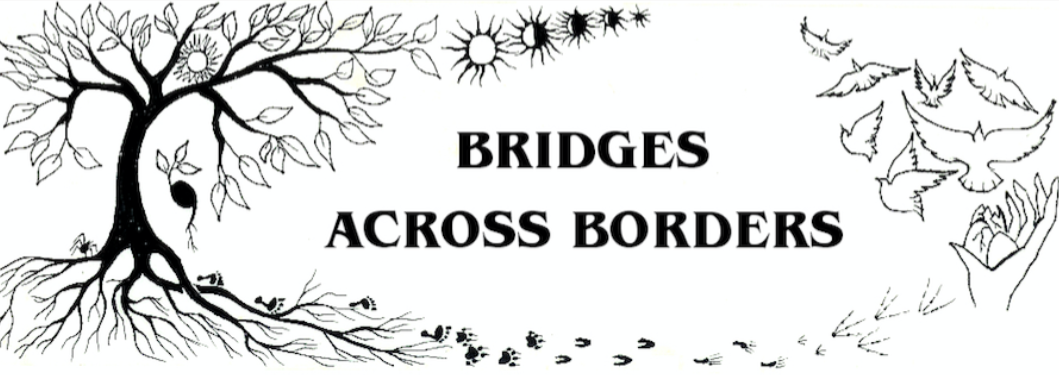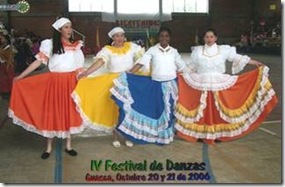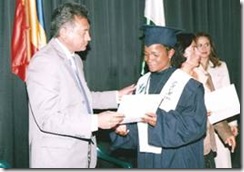PAULA FLOREZ
Paula first came under our wings at our first Summer Youth Leadership Gathering in Jaque, Darien, Panama. She was a real dynamo of about 16 years old with a vibrant personality. Right away, she took on helping us to coordinate the camp activities.
She was a Colombian refugee who had crossed the border with her family after the massacre in Jurado, Choco’. Life isn’t easy as an externally displaced person in Panama. Since it is assumed that you will eventually return to your home country, you have few rights. It was hard for her father to work to support the family and, since there was no high school in Jaque even for the Panamanian youth, there was no way her to even hope of completing her education in Panama City. The fate of most girls in her position was to find a guy (who would hopefully marry you) and start having babies. But Paula had dreams that were larger than that. She wanted to finish high school and maybe even go to college to study Psychology so she could help other victims of massacres to deal with their post traumatic stress disorder (PTSD). We were determined to help her have that chance.
Shortly before Christmas of that same year, we got word that there would be a forced repatriation of the refugees, sending them back to Jurado despite the lack of guaranteed security. We knew the authorities had been coercing people to go back and, in fact, we brought a video camera down for the camp and held a workshop for a few budding photographers who interviewed the refugees asking who wanted to return voluntarily and who was being sent under duress. When we got the word that Panama was sending refugees back, we quickly formed a witnessing group and headed south. As it turned out, only about half of those scheduled to go actually went, once we were able to prove with our documentation that they had been coerced and lied to. Paula’s family had decided to leave, since living in Jaque as a refugee was so difficult. Even if they still had to fear the possibility of another paramilitary attack, at least the father could plant his crops and provide food for his family. (click here for article on Repatriation)
We knew we had to find a way to get Paula through high school. After seeking schools in Bogota to no avail, we found a place in the mountains up from the city and a family with whom she could stay. It wasn’t easy on her. It was cold in the mountains and she was used to the warmth of the Pacific coastal jungle. And there were not black people in the mountains either, while Choco’ was inhabited by indigenous and African Descendents.
But she did it! She joined the soccer team and a Traditional Dance group (traditional Latin dances, not traditional Chocoan dances) and made the most of her situation. She got her high school degree! And, no baby or early marriage as an escape from her difficulties.
After graduation she wanted to do a little traveling to some other communities that had suffered at the hands of armed actors in the decades long civil war. She was thinking to maybe go to Cacarica, a “peace community” that had suffered its own massacre and declared that no armed actors are welcomed there. It should be noted here that the “good guys” are the ones without weapons. Local people often find themselves caught between the battling actors of guerillas, paramilitary and even the Colombian military itself. They are frequently accused of being drug dealers as justification for their demise, when the real benefit of corruption is gotten by the armed actors themselves. The local population loses on all fronts; loss of loved ones, loss of land and loss of personal and familial security.
I decided to take a few of “my girls” with me to the Yanama (gathering) of the Wayuu, who each year called for an international accompaniment to their ancestral coastal desert lands of Bahia Portete in La Guajira region, from which they are exiled since the massacre there in 2004. So Adriana, Paula, and another “Chocana” from Jurado, Dalicia joined me as witnesses. It was a powerful experience for all of us, with the girls from Choco’ sharing their stories of the massacre in their coastal jungle community with these indigenous Wayuu coastal desert dwellers. Paula decide the stay there after the Yanama and remained for another year.
She has recently returned to Jurado, but has grown well beyond the ability to reside in a sedentary existence that is typical of her jungle community. She is ready to move into the next phase of her desire to be of service to humanity and has expressed that she is headed to Bogota in an attempt to further her studies and begin university. We want to help her with the means to be of service. If you want to help, too, let us know. The world can certainly use a Paula to assist others who have known the trauma of violence in their world.


